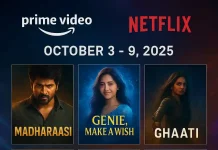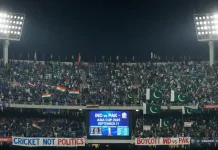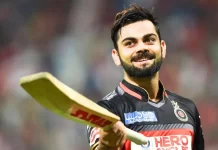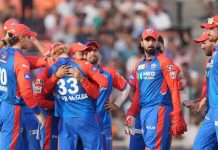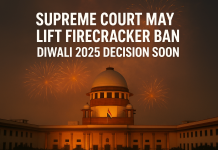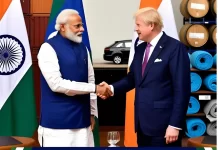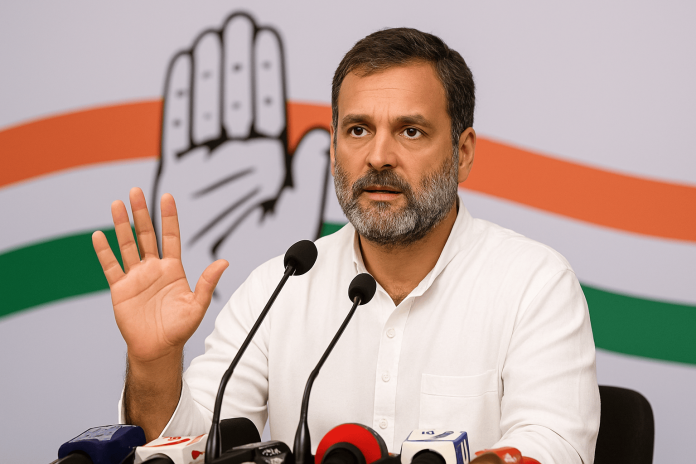India’s political scene has rarely been short of drama, but Rahul Gandhi’s latest moves have set the stage for what could be one of the most consequential controversies of recent years. With his claim of exposing a “hydrogen bomb” related to electoral fraud—what he calls “vote chori” (vote theft)—the Congress leader is preparing for a new phase of confrontation with the Election Commission of India (ECI) and the ruling Bharatiya Janata Party (BJP).
On September 18, 2025, Gandhi held a special press conference in New Delhi where he alleged mass voter deletions across several states, claiming the ECI was shielding the guilty. His remarks were designed not just as political rhetoric but as the launchpad of a broader campaign, with promises of more revelations in the coming days.
This article dives deep into the controversy, covering:
- The background of Gandhi’s campaign.
- Details of his explosive allegations.
- The political and legal context.
- Upcoming events and strategies.
- Reactions from key stakeholders.
- The implications for India’s democracy.
⚡ The “Hydrogen Bomb” Metaphor
Rahul Gandhi has often been criticized for his political communication, but this time his metaphor has dominated headlines. By calling his revelations a “hydrogen bomb”, Gandhi aimed to suggest something massive, irreversible, and potentially devastating for his opponents.
On September 1, 2025, during the Voter Adhikar Yatra in Bihar, Gandhi told supporters:
“I will soon present evidence so explosive that the Prime Minister will not be able to show his face.”
This statement heightened anticipation. By September 18, at his Delhi press conference, Gandhi released a series of allegations supported by data points, anecdotes, and examples, presenting himself as a whistleblower on behalf of Indian voters.
📋 Key Allegations Made by Rahul Gandhi
At the September 18 briefing, Gandhi laid out what he called “proof” of systematic voter suppression. The main allegations include:
1. Mass Deletion of Voter Names Across States
- Voter lists have allegedly been manipulated in Karnataka, Maharashtra, Haryana, and Uttar Pradesh.
- Millions of names have been struck off, Gandhi claimed, disproportionately from communities least likely to support the BJP.
2. Targeted Communities
- According to him, the deletions are not random.
- Dalits, Adivasis, OBCs, and minorities are most affected, which Gandhi framed as an assault on the very foundation of Indian democracy.
3. Case Study: Aland Assembly Constituency (Karnataka)
- Gandhi presented the example of Aland in Kalaburagi district during the 2023 state elections.
- Allegedly, 6,018 names were deleted, though he believes the true figure is much higher.
- The anomaly was discovered only because a booth-level officer’s own relative found his vote missing.
4. Fake Logins and Automated Systems
- Forms for voter deletions were filed at suspiciously fast speeds:
- 2 applications in 38 seconds.
- 12 applications in 14 minutes.
- Gandhi argued this was evidence of a centralized, automated operation, not individual actions.
5. Use of External Phone Numbers
- In some cases, phone numbers from other states were used to request deletions.
- This suggests coordination beyond the local level.
6. Election Commission’s Non-Responsiveness
- Gandhi revealed that the Karnataka CID wrote 18 times in 18 months to the ECI requesting technical details like:
- IP addresses.
- OTP records.
- Device identifiers.
- Yet, the ECI allegedly never responded.
7. Deadline to the CEC
- Gandhi gave Chief Election Commissioner Gyanesh Kumar a one-week deadline to release the relevant data.
- He warned that failure to do so would prove the ECI is protecting “vote chors” (vote thieves).
🗓️ Rahul Gandhi’s Upcoming Events
Rahul Gandhi has mapped out a clear political calendar around the issue:
1. Voter Adhikar Yatra (Bihar, August 17 – September 1, 2025)
- A mass awareness march aimed at exposing voter roll irregularities.
- Culminated at Gandhi Maidan in Patna on September 1.
2. September 18 Press Conference in New Delhi
- First installment of his promised “hydrogen bomb.”
- Focused on the Aland case and voter deletions in multiple states.
3. Vote Chor, Gaddi Chhor Campaigns in States
- Congress has rolled out state-level protests.
- In Chhattisgarh (September 16–18), Sachin Pilot led rallies under the slogan “Vote Chor, Gaddi Chhor.”
4. Next Phase of Evidence Disclosure (Late September 2025)
- Gandhi suggested that the September 18 event was only a teaser.
- More detailed disclosures, possibly with technical evidence, are expected in the coming days.
5. Nationwide Mobilisation
- Rahul Gandhi has instructed state units to launch:
- Signature drives.
- Booth-level campaigns.
- Legal petitions where irregularities are found.
🔎 Political and Legal Reactions
Election Commission of India (ECI)
- Denied all allegations, calling them “incorrect and baseless.”
- Asserted that no deletion can occur without due process, which includes notifying the voter and allowing appeals.
- Pointed to existing FIRs, such as in Aland, where irregular attempts were made.
BJP’s Stand
- Dismissed Gandhi’s claims as a political gimmick.
- Accused him of spreading misinformation to cover Congress’s weaknesses.
- Challenged him to present evidence in court rather than “in rallies and press conferences.”
Civil Society and Experts
- Election law experts have said the allegations, if true, could represent a systemic threat to democracy.
- Others caution that without verifiable data (logs, OTP trails, IP addresses), the claims remain allegations.
🌍 Why the Allegations Matter
- Democratic Integrity
Voter rolls are the backbone of free and fair elections. If manipulation is proven, it shakes trust in India’s democracy. - Community Targeting
The claim that specific communities are disproportionately deleted adds a social justice angle, which could mobilize Dalit, Adivasi, and minority voters. - Role of Technology
Allegations of automation and misuse of OTPs point to new vulnerabilities in digital governance. - Institutional Credibility
The ECI’s reputation as an independent body is at stake.
📌 Key Features of This Controversy
- Explosive Language: Use of terms like “hydrogen bomb” ensured media traction.
- Specific Example: The Aland case gave the narrative credibility.
- Time-Bound Challenge: A one-week deadline creates urgency.
- Community Framing: Positioning the issue as an attack on marginalized groups strengthens Congress’s political messaging.
- Campaign Integration: The issue is tied into yatras, rallies, and signature drives—keeping momentum alive.
⚖️ What Lies Ahead
For Rahul Gandhi
- Needs to present concrete, verifiable evidence.
- Must avoid overhyping without substance—risking credibility.
- Will likely escalate with legal filings or parliamentary interventions.
For the Election Commission
- Has to defend its credibility.
- May need to release technical data or allow an independent audit.
For BJP
- Faces pressure if evidence sticks.
- Needs to counter the narrative effectively without appearing dismissive of voter rights.
📊 Timeline of Events
| Date | Event |
|---|---|
| Aug 17 – Sep 1, 2025 | Voter Adhikar Yatra in Bihar |
| Sep 1, 2025 | Gandhi promises “hydrogen bomb” |
| Sep 16–18, 2025 | “Vote Chor, Gaddi Chhor” rallies in Chhattisgarh |
| Sep 18, 2025 | Delhi press conference with first set of revelations |
| Sep 25, 2025 (deadline) | Deadline for CEC to release technical data |
| Late Sep 2025 | Expected further disclosures, evidence dumps |
ahul Gandhi has turned “vote chori” into the central theme of his latest campaign, using fiery language, targeted allegations, and promises of more revelations. Whether his “hydrogen bomb” lives up to its billing will depend on hard evidence and whether institutions respond transparently.
If proven, his claims could be among the most serious electoral scandals in India’s history, forcing legal reforms and political accountability. If unproven, they risk being dismissed as political theatre.
Either way, this battle will dominate India’s political narrative in the coming months, shaping both public trust in democracy and the fortunes of the Congress Party ahead of crucial elections.










